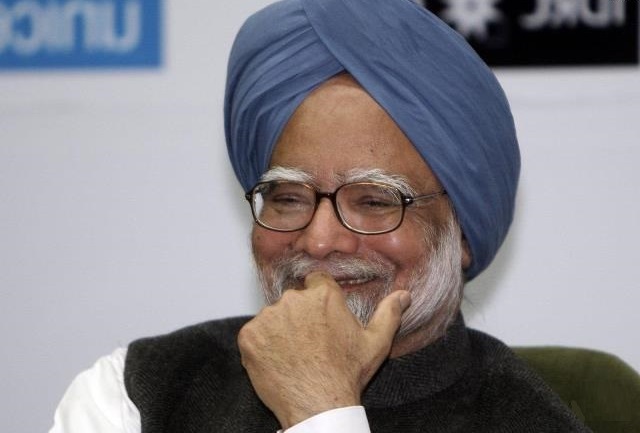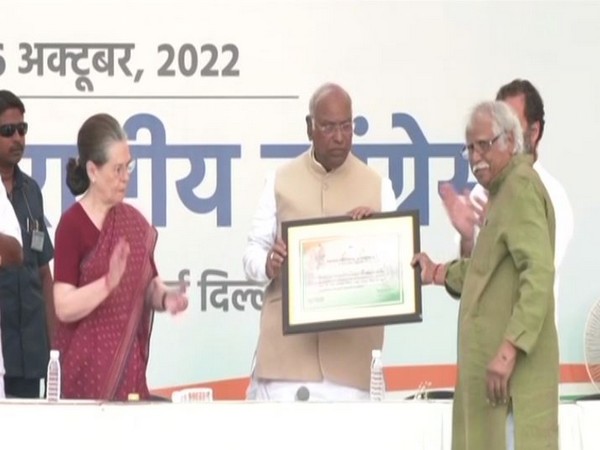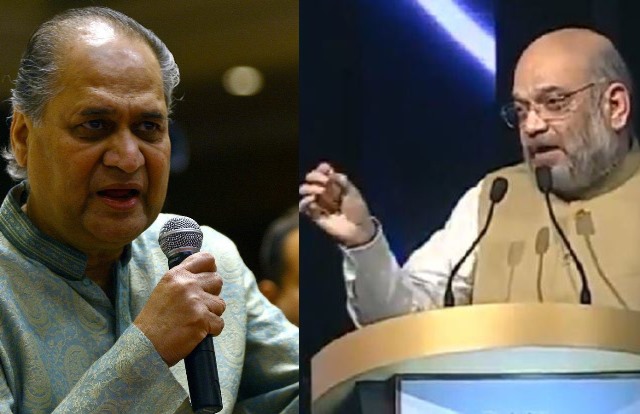As many ask if India, under its current dispensation’s ‘majoritarian’ agenda, can have a ‘minority’ prime minister like British premier Rishi Sunak, the ruling Bharatiya Janata Party (BJP) rightly, but rather conveniently, has named its long-time target, Dr Manmohan Singh, a Sikh.
He is the only top Congressman not attacked these days. At 90, now that he holds no office, he is being praised, grudgingly or genuinely, by BJP ministers. And they are neither mavericks nor dissidents in the Modi team.
Singh’s ‘qualifications’ that suit their political peeves must include not being a Nehru-Gandhi scion. He is their convenient mascot as they demonize everything Nehruvian.
Union Minister and former BJP president Nitin Gadkari recently said that the country is ‘indebted’ to Singh for ‘liberal’ and “pro-people” economic reforms. Citing his own experience of the 1990s, he said he was able to raise millions from the public and from the institutions to lay roads and bridges in Maharashtra. With them, he had gained national limelight.
Singh’s contribution is big enough to attract sugar-coated negative jibes. Another minister Mansukh Mandeviya has alleged that Congress had blocked Singh’s plans to introduce the goods and service tax (GST) for ten years. The minister needs to remind that Modi as Gujarat’s Chief Minister had refused to cooperate. The BJP had opposed the GST at the ministerial council, although that body was headed by one of their own men. Indeed, GST had become a political football for long years.
Singh criticised Modi’s dramatically introduced demonetisation, precisely six years ago. He was called “anti-national” in the House for predicting a fall in the GDP. He proved right, but none showed the grace to acknowledge it. Recalled last week was Modi’s seeking 50 days’ time for demonetisation to succeed, failing which, he had said: “Zinda jala dena” (burn me at the stakes).
Singh’s low-pitched voice of sane economics that the likes of George Bush Jr. and Obama respected is being missed at home amidst a plethora of claims of achievements.
Occasionally, he speaks his mind. Conferred an award last week, he asserted that India “will continue to rise and show to the world the way forward by blending tradition with modernity.”
But there are caveats. Economic growth, social change and political empowerment have brought in their wake “new aspirations of an entirely new generation of Indians.” They must be fulfilled.
He had tackled two such generations at the turn of the century. As the prime minister in 2004, a surprise choice of Congress chief Sonia Gandhi who chose not to take the post herself, Manmohan Singh recalled, “I took on that responsibility with diligence as my tool, truth as my beacon, and a prayer that I might always do the right thing. As I have said on many occasions, my life and tenure in public office are an open book. Serving this nation has been my privilege. There is nothing more that I could ask for.”
Today, people forget that the automobile and aviation revolution was really unveiled under Singh. Cars and plane tickets became affordable for the Indian middle class and two-wheelers for the larger masses.
Asked to assess his own performance as the premier, Singh had once modestly rated himself 6/10. Perhaps, he had left room for future criticism, allowing for re-assessment to fluctuate with time — and political changes.
Unsurprisingly, some of the criticism has come from latter-day critics who once praised his reforms. Among them is NR Narayan Murthy, the Infosys czar, who recently called Singh ‘extraordinary’ as the prime minister, but maintained that he had ‘blocked’ reforms.
Murthy is not alone. Switching sides after the surprise defeat of the Vajpayee Government in 2004, much of India’s corporate sector supported Singh as the prime minister. But they had tempered their praise with caution against spending too much on poverty alleviation schemes. Singh did not play the ball on that score.
In the 1990s, Corporate India gingerly recognised Narasimha Rao’s political backing that had enabled Singh’s reforms. Rao had wanted that they must have “a human face.” But they did not appreciate Singh’s political compulsions as the prime minister of allocating billions, even if he had reservations, for the anti-poverty programmes that formed the Congress’ political plank.
They dealt with Singh like they had done with Narasimha Rao earlier. Impatient during the political turmoil in the latter half of Singh’s second term, they accused his government of “policy paralysis.” They switched their support to Modi’s promise of graft-free reforms that placed earning with dignity over doles.
But while the wisdom of welfare-ism has been questioned, none has recognised the fact that Modi has continued with many of those schemes, ‘sinking’ more billions, albeit under different titles.
Times have definitely changed, and so has media-driven public perception. Those who criticised Rao and Singh’s ‘silence’, called “mauni-baba” in their times, have no problem with Modi’s one-sided discourse, full of rhetoric, on economic management, or, his silence on myriad contentious issues. His claims of achievements go unchallenged, even as he blames the past governments, from Nehru to Singh (Vajpayee’s period included).
ALSO READ: Is Rahul The Last Mughal of Nehru Dynasty?
Singh is a misfit in the present times. Even when he was in the government, he was a misfit on many counts. Rao had thrown the economist/bureaucrat-turned-reluctant minister, to the wolves, they being full-time, hard-core politicians, unlike Singh. He had let him prioritize the reforms, but also let him face the music.
Singh’s reforms, when introduced, were difficult to digest. At least two of his cabinet colleagues, now dead, had told me privately, “Bhai, yeh toh hamein dubayega” – he will sink the government and the party. Eventually, Rao lost the 1996 elections, only partly due to the scams – sugar, share market, and telecom — but mainly due to his political miscalculations, ranging from Babri demolition to wrong electoral alliances.
A political non-entity who became the prime minister, Singh was without Rao-like political backing. With iffy support from Sonia Gandhi, he had to bear pressures from his party men, some of whom flaunted greater proximity/loyalty to the party chief. Some alliance partners not just chose their nominees in the council of ministers, but also demanded specific portfolios.
Yet, he had kept the economy going during the global depression and ended his decade at a higher growth rate than the present-day figure. His jugular for the civil nuclear treaty with the US surprised his supporters and frustrated his critics.
The Left-influenced schemes such as MNREGA won the Congress a second term despite vicious propaganda that the nuclear deal with the US had made India a ‘satellite’ of the US-led western bloc.
He may have succeeded in making the India-Pakistan border irrelevant and reducing tensions if India’s ‘nationalists’ had displayed vision and Musharraf had survived his own follies. And a Sikh premier had apologized to his community for the 1984 violence.
Thirty-one years back, he had said that the emergence of India as an economic powerhouse was “an idea whose time has come”. His contribution to that tryst during half of that period needs a calmer assessment.
Manmohan Singh had once expressed the hope that pilloried by the present, history may judge him “more kindly”. For now, that will have to wait.
Read More:http://13.232.95.176/
The writer can be reached at mahendraved07@gmail.com




